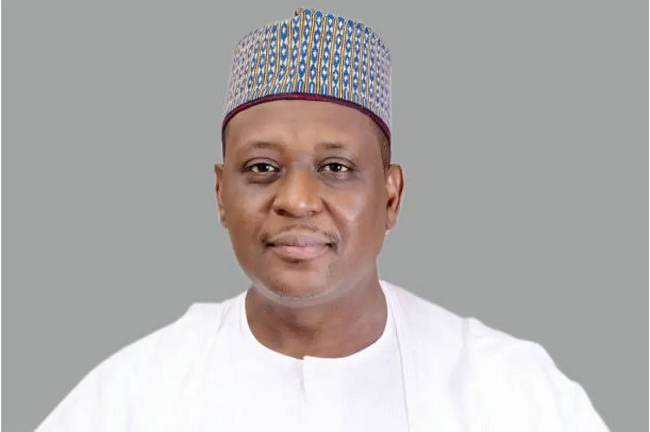Nigeria, a country facing numerous health challenges, is embarking on a bold transformation of its healthcare system to overcome those hurdles.

President Bola Tinubu underscored the enormity of the challenge and expressed the readiness of his administration to tackle them.
President Bola Tinubu says his administration is fully committed to providing quality healthcare facilities for Nigerians.
”Africa is in need, and Nigeria is committed to the needs of its people. Putting people’s welfare first is putting healthcare first…we are determined to succeed,’’ Tinubu said.
He spoke during a meeting with Benedict Oramah, President and Chairman of Board of Directors, African Export-Import Bank (Afreximbank), accompanied by a delegation from King’s College Hospital, London (KCH).
Nigerians look up to the government to take actions as they grapple with a health sector that can hardly meet their needs.
Prof. Muhammed Ali Pate, the Coordinating Minister of Health and Social Welfare, understands the huge expectations on him not only by the Tinubu but the entire populace and says efforts are in top gears to rejig the sector.
He said the government was introducing sweeping initiatives to enhance access to quality healthcare across all demographics, regardless of location or socioeconomic status.
A cornerstone of this transformation is the Sector-Wide Joint Annual Health Review (JAR), an unprecedented gathering uniting government bodies, healthcare workers, and community representatives.
Through JAR, stakeholders critically assess progress, align on strategic priorities, and set actionable goals under the Nigeria Health Sector Renewal Investment Initiative (NHSRII).
According to Dr Muntaqa Umar Sadiq, National Coordinator of the Sector-Wide Coordinating Office (SCO-PMU), “Through transparency and evidence-based planning, we’re laying the groundwork for a resilient healthcare system.”
Yet, the statistics reveal the scope of Nigeria’s healthcare challenges. According to the latest Healthcare Access and Quality (HAQ) Index, Nigeria ranks 187th out of 195 countries with a score of 41.9.
Dr Richardson Ajayi, an obstetrician and gynaecologist, said this low ranking underscored the urgent need for systemic reform to provide timely and effective care.
Ajayi further said the 2023 Statista Health and Health Systems Ranking places Nigeria as the 157th best healthcare system globally, behind several African neighbours.
“These rankings, though different, tell the same story: Nigeria’s healthcare system is failing millions, forcing many to seek care abroad.
“The statistics are disheartening, but they serve as a call to action,” he said.
As Nigeria strives to improve, three pillars stand out as critical namely accessibility, affordability and quality.
Stronger regulations and monitoring systems are necessary to ensure facilities meet global standards.
Countries like Rwanda and Ghana demonstrated what is possible with committed reforms toward universal health coverage.
Stakeholders argue that the question for Nigeria is not whether it can follow suit, but how soon it can commit to the necessary hard work to achieve these changes.
While optimism is growing, financial and operational challenges persist.
Dr Kelechi Ohiri, Director-General, National Health Insurance Authority (NHIA), highlighted the need for consistent funding: “Our health system requires reliable financial support.”
Ohiri said that sustainable funding was crucial to make these programmes effective for every Nigerian, especially those in remote areas.
Some Nigerians are already hopeful. Mrs Veronica Amata, a retired nurse, commented: “For the first time, we’re seeing real efforts to address issues at our PHCs (Primary Health Centres)”.
Yet, in rural areas like those in Borno, concerns remain. As Mr Ibrahim Musa, a community health volunteer, explained: “We need more trained health workers, and our patients still face travel challenges.”
The government aims to tackle these issues by expanding community health worker programmes, though healthcare worker shortages remain critical, particularly in remote regions.
“Attracting and retaining health workers is key to achieving universal health coverage,” said Dr Muyi Aina, Executive Director, National Primary Health Care Development Agency (NPHCDA).
“Investment in workforce training and retention incentives is underway, but further strategies to build a committed workforce could strengthen these reforms.
“Past reform efforts have struggled due to funding and accountability limitations,” according to Dr Dogara Okara, Senior Technical Adviser to Permanent Secretary, Ministry of Health and Social Welfare.
“Our approach today is shaped by lessons from the past. We’re focusing on community engagement, transparency, and regional needs,” he said.
These reforms aim to address previous challenges, as well as foster a more inclusive and accountable system.
Pate is conscious of the role of the private sector in delivering a health sector of Nigerians’ dream, saying that ministry was intensifying collaboration with private healthcare providers and exploring digital solutions.
He said partnerships with private hospitals and tech companies aimed to bring telemedicine and digital health tools to underserved regions.
“Digital tools are essential for reaching remote communities and ensuring accurate health data. We are working with partners to integrate these into our primary health centres,” Pate.
Dr Oyebanji Filani, Chairman, Nigerian Health Commissioners Forum and Ekiti State Commissioner for Health and Human Services, says the state government is ready to key into the Federal Government’s health sector revival agenda.
“We’re committed to showing Nigerians how their health system is evolving, step by step.”
As Nigeria sets out on this new curve in its health sector development trajectory, public participation and oversight are crucial.
By addressing financial and workforce challenges, leveraging technology, and involving the private sector the future will be the brighter Nigeria aspires to create a resilient and inclusive healthcare system that meets the needs of every Nigerian.
The journey will not be easy, but reforms remain the critical step forward. Nigerians are eagerly waiting for its outcome.
By Abujah Racheal, News Agency of Nigeria (NAN)
